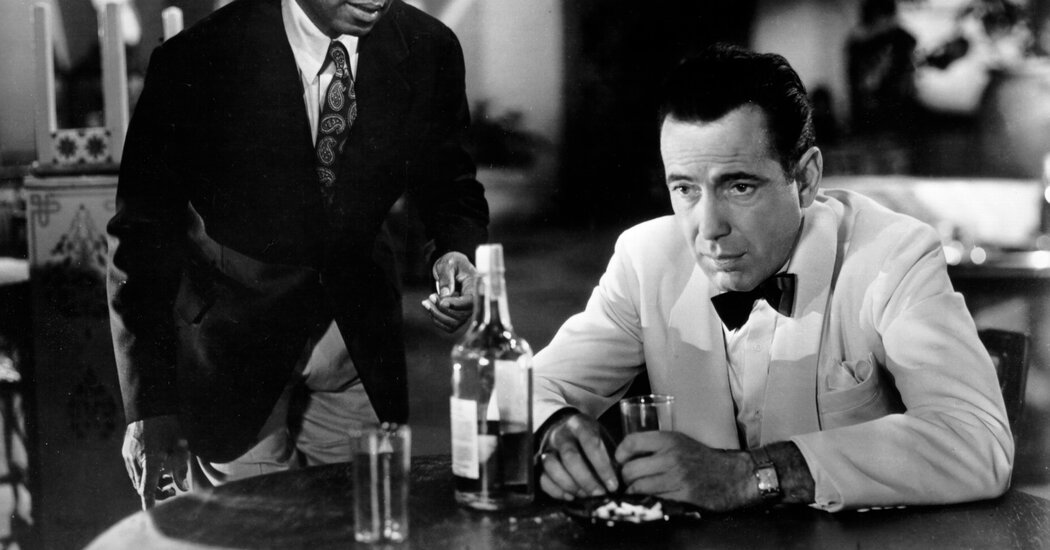Hollywood mourned in 2019 when 20th Century Fox ended its 84-year run as a stand-alone studio — for the jobs lost, for the proud legacy ended. But it was measured grief, the kind that quickly fades into acceptance.
An atmosphere of bereavement returned this week, as Warner Bros. headed to auction. Only this time the sadness is much more profound.
Warners, as Hollywood refers to the 102-year-old studio, was supposed to be strong enough to survive into the next media era, even as lesser legacy competitors perhaps faltered. Now it could suffer the same fate as Fox.
How could it have possibly come to this?
“To lose Warners as a stand-alone studio would be heartbreaking,” Dan Jinks, an Oscar-winning producer, said. “There are already so many good people in every area of entertainment who are out of work, and now we find out that one of the biggest, most reliable studios could get consolidated?”
The Ankler, an entertainment trade news outlet, begged Hollywood unions to get involved. “Is anyone awake out there to stop this?” Richard Rushfield, who often speaks for the creative community as a type of insider’s insider, wrote in an Ankler column. “Disappearing Warner Bros. into another studio has to be anathema to all we’ve got,” he wrote in another.
Warner Bros. has been sold and resold over the decades. AT&T gained control in 2018 as part of its $85.4 billion purchase of Time Warner. Discovery, a cable television company, took over in 2022.
But those corporate maneuvers gave some hope of a brighter future for the studio. Discovery even pledged to return Warner Bros. to its glory days, increasing production and recommitting to releasing films in theaters. David Zaslav, the Warner Bros. Discovery chief executive, spent much of his first year in the role rhapsodizing about the studio’s rich legacy, repeatedly paying tribute to Jack, Harry, Sam and Albert Warner, “the brothers who started it all.”
Over the spring and summer, Warner Bros. had one of the most successful box office runs in its history, delivering seven hits in a row, including Ryan Coogler’s “Sinners,” which is expected to be a force at the coming Academy Awards.
On Tuesday, however, Warner Bros Discovery effectively hung a “For Sale” sign, saying it was considering a sale of some or all of the company in response to interest from potential buyers. Those include Paramount, newly flush with money from the Ellison family; Comcast, which owns Universal Pictures; and Amazon Studios, which owns Metro-Goldwyn-Mayer.
That suddenly made the unthinkable — the end of Warners as a stand-alone studio — a possible (even likely) reality.
“Doom, gloom and rage” is how one veteran screenwriter summed up the mood in Hollywood’s creative community. The Writers Guild of America, which represents screenwriters, said in a statement later on Thursday that “combining Warner Bros. with Paramount or another major studio or streamer would be a disaster for writers, for consumers and for competition.”
The union vowed to “work with regulators to block the merger.”
More than any movie company, Warner Bros. symbolizes the romance of Old Hollywood. Bette Davis and James Cagney acted on its soundstages. Its library includes “Casablanca,” “The Maltese Falcon,” “Bonnie and Clyde,” “2001: A Space Odyssey,” “Dirty Harry,” “The Shining” and “Chariots of Fire.”
Many writers, directors, actors and other film industry workers see themselves as part of that legacy.
“Warner Bros. also hits harder because it was run in the not-so-distant past by men that protected filmmakers — Bob Daly, Terry Semel, Alan Horn, Steve Ross,” said Sam Wasson, a film historian whose books include “Hollywood: The Oral History,” written with Jeanine Basinger.
“And there’s the glamour of the real estate,” he added, speaking of the stately, beige-walled Warner Bros. compound in Burbank, Calif. “The water tower, the garden paths. You walk on that lot and you still feel Hollywood. That’s not true elsewhere.”
Fox had a fabled history, too. It championed Marilyn Monroe, produced classics like “The Sound of Music” and released the first “Star Wars” movie. By the time Disney absorbed Fox in 2019, however, Hollywood had long come to view the studio as something of a lost cause: Everyone figured the unsentimental Rupert Murdoch, who bought Fox in 1985, would sell it to another entertainment company sooner or later.
Fox also fell at a time when the entertainment economy was much healthier, at least on the surface. Money gushed into movie and television production as companies tried to build streaming empires. The North American box office, fueled by hits like “Black Panther” and “Bohemian Rhapsody,” hit a record $12 billion in 2018.
Seven years later, the Peak TV bubble has popped. Multiplexes in the United States and Canada just had their worst summer since 1981, adjusted for inflation and excluding the Covid-19 pandemic years. Movies and TV productions have rapidly left California to film outside the United States, where labor costs are lower and tax incentives greater.
The rise of artificial intelligence is expected to further upend the job market. And many people in Hollywood are worried about censorship under the Trump administration.
So the mood in moviedom was already grim. With the future of Warner Bros. in question, it has grown even worse.
“I hate this,” said Larry Gordon, a former president of Fox Entertainment Group and a producer of “Field of Dreams,” “Die Hard” and other films. “With Fox gone, this is like another death in the family.”
Brooks Barnes covers all things Hollywood. He joined The Times in 2007 and previously worked at The Wall Street Journal.
Nicole Sperling covers Hollywood and the streaming industry. She has been a reporter for more than two decades.
The post Hollywood Weeps as Warner Bros. Hangs a Sale Sign appeared first on New York Times.




